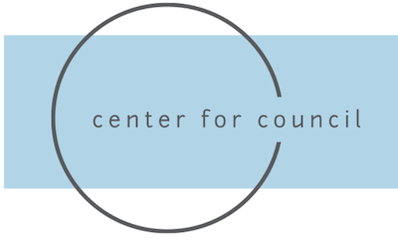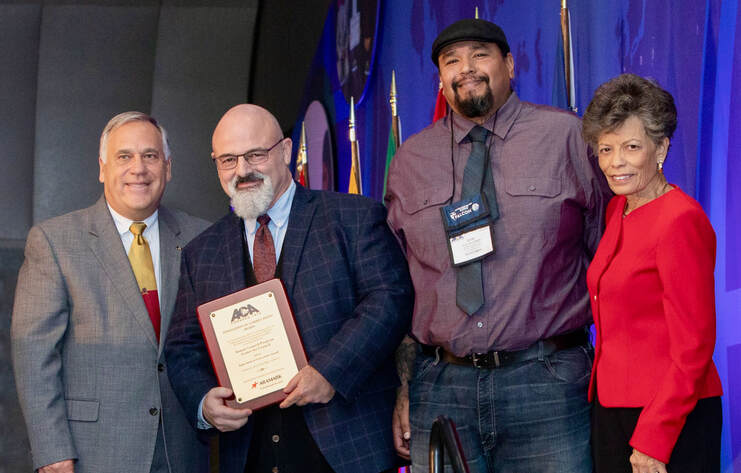 The American Correctional Association has awarded Center for Council's Inmate Council Program its 2019 "Innovation in Corrections Award." This prestigious award honors the powerful work C4C has done building programming for the state's incarcerated population, now reaching 22 of the state's 35 prison facilities. The Inmate Council Program is a six-month intervention where participating inmates are trained to facilitate Council sessions for their peers, empowering them to become positive agents of change, on the prison yard, and in their lives. The program contributes to a shift of culture within prisons and equips participants with tools for successful reentry and reintegration into their communities upon release The award was presented on January 14, 2020, in a ceremony at the end of ACA's Convention. The award was presented to Center for Council "For its outstanding efforts in reducing recidivism and promoting future success for offenders" and was accepted by Sam Escobar and Jared Seide. ACA President, Gary Rohr, and Chair of the Awards Committee, Vicki Myers, presented Sam and Jared with the award. The American Correctional Association is the oldest association developed specifically for practitioners in the correctional profession. The ACA provides a professional organization for individuals and groups committed to improving the justice system. The annual "Innovations is Correction Award" is intended to broaden the knowledge and familiarity amongst the membership of the ACA of successful rehabilitative program interventions and to recognize an outstanding correctional program.
2 Comments
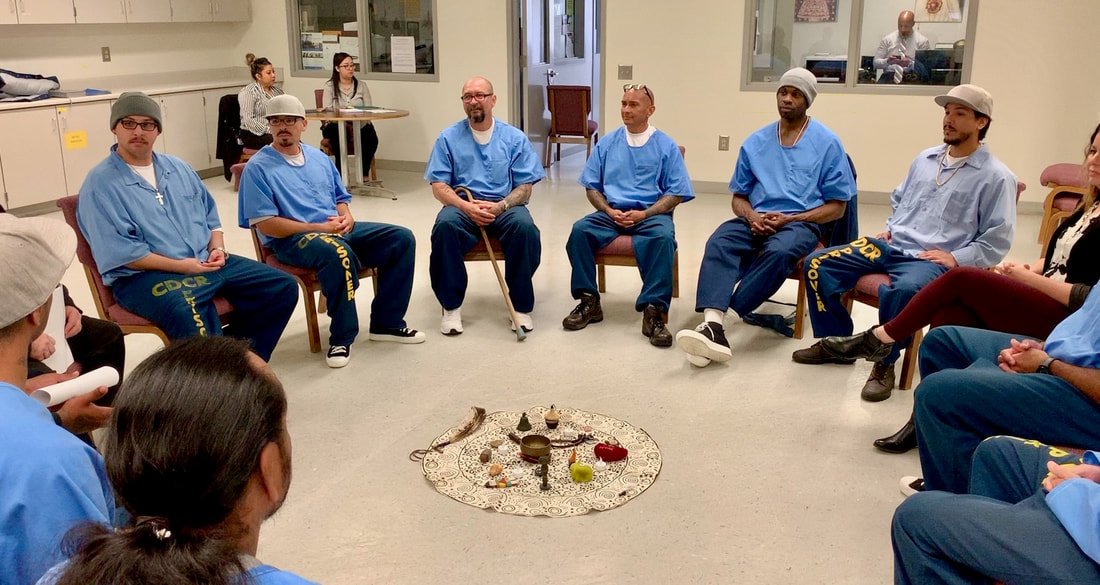 A wide-ranging new study, led by Principle Investigator Dr. Stacy Calhoun, of the University of California Los Angeles, has found that Center for Council's statewide Inmate Council Program demonstrated "significantly positive outcomes" for the subjects involved in the study. This study involved 399 inmates participating in ICP groups throughout eight different facilities, and examined quantitative measures, as well as qualitative assessments of program impact. The study looked at factors including changes in physical and verbal aggression, anger, hostility and PTSD symptomatology and found notable decreases in those areas, among inmates who participated in the program. The study also found statistically significant increases in measures of resilience, empathy, mindfulness and social connectedness. Dr. Calhoun's report states that "findings from this evaluation suggest that this program is having a positive impact on participants who complete it, with many indicating a high level of satisfaction with the program." The study utilized a range of academically validated measurement scales, including the Interpersonal Reactivity Index (IRI), Brief Resilience Scale (BRCS), Five Facet Mindfulness Questionnaire-Short Form (FFMQ-SF), Short-Form Buss-Perry Aggression Questionnaire (BPAQ-SF), Social Connectedness Scale-Revised (SCS-R), Mental Health Inventory-5 (MHI-5), The Active-Empathic Listening Scale (AELS), and the PTSD Checklist for DSM-5 (PCL-5). In addition to statistical analysis, the research team also conducted interviews and focus groups with participants, as well as program staff. The research design has been developed over several years of analysis of the ICP, which has been offered to inmates in CDCR facilities since 2013. In 2018, Center for Council was asked by the Office of the Inspector General to present its approach to research, which focuses on shifting criminogenic factors like empathy, impulse control and anti-sociality, to the California Rehabilitation Oversight Board. Methodology developed for this research has been referenced in the state's CARE Grant program, enacted into California penal code in July of 2019. The results of the study will be published in an upcoming article. The evaluation report can be viewed here. Sam & Jared with Warden Tammy Foss and the leadership team of the ICP at Salinas Valley State Prison 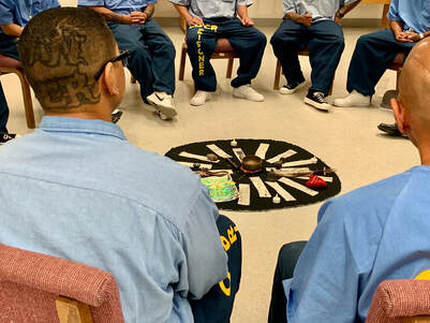 The California Department of Corrections and Rehabilitation has awarded Center for Council with new funding as part of the sixth round of its Innovative Programming Grant. This round of funding was intended to support rehabilitative programs with victim-focused restorative justice components that emphasize "offender accountability" and develop insight into the perspective of those harmed by criminal acts. Council is a powerful practice for developing empathy and taking the perspective of "the other," through deep listening and authentic presence. Exploring the perspective of those harmed is an important part of the work of the Inmate Council Program and we are eager to develop this aspect of our program curriculum with this new opportunity. There was enormous interest expressed in this funding opportunity and CDCR received grant proposals amounting to over six million dollars in proposed programming. Only 17% of the proposals submitted were successful. We are grateful for this opportunity to provide our programming at two facilities, the Substance Abuse Treatment Facility, in Corcoran, and Ironwood State Prison. Both programs will operate for two years, and will set the stage for self-sustaining programming, facilitated by inmates who will eventually co-lead the program and who, we hope, will join our efforts to build and support programming for impacted communities upon their release.
|
Categories
All
Archives
March 2024
|
|
|
About |
|

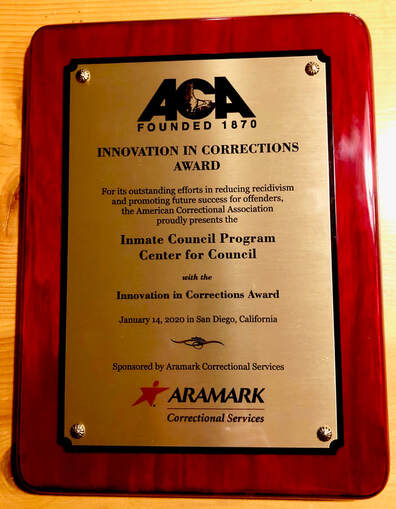
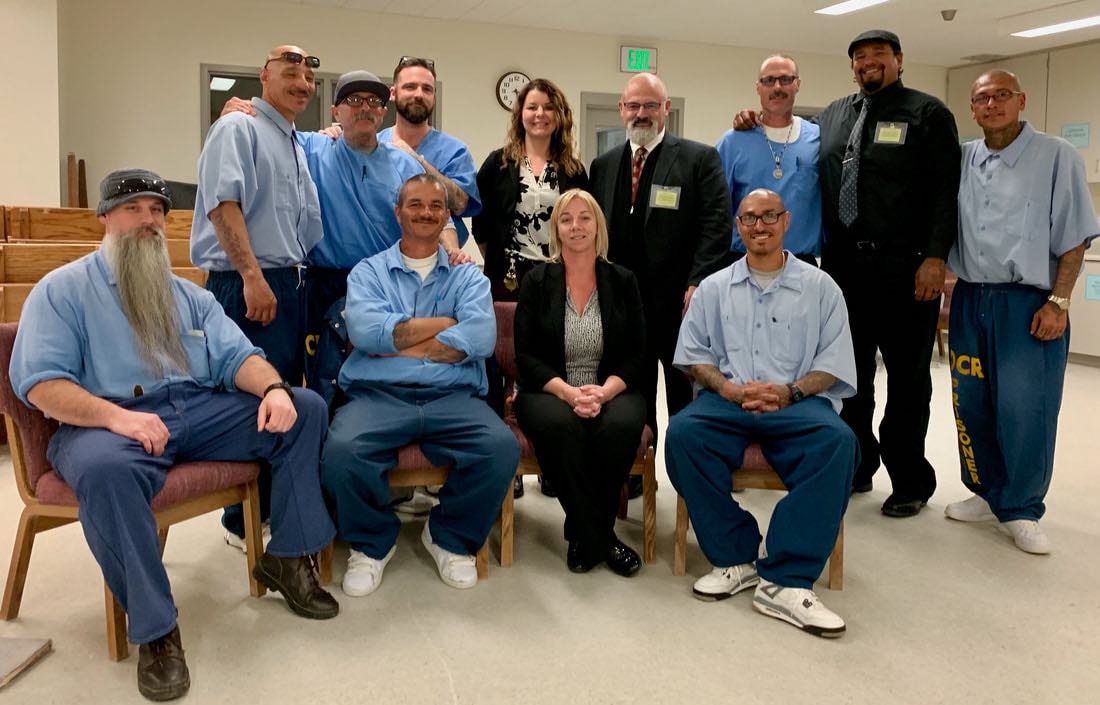
 RSS Feed
RSS Feed
